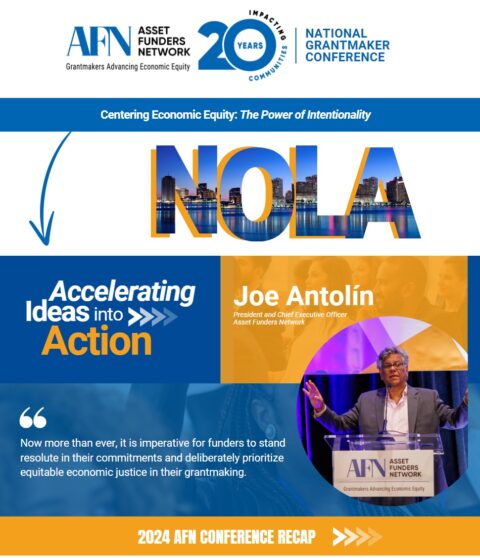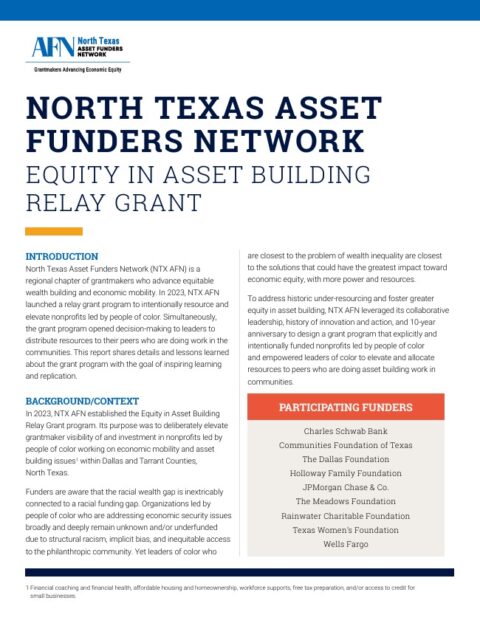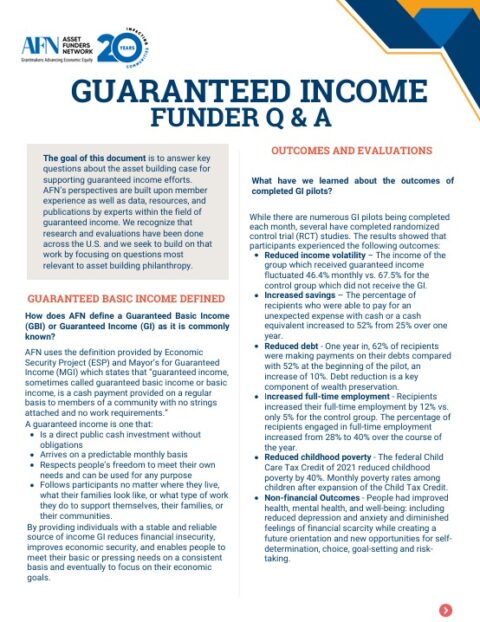Peer-to-Peer: Place-Based Insights and Action for Reimagining Your Post-Secondary Education Funding
We are opening up this conversation to all funders (grantmakers only).
Historically, philanthropy has supported educational programs for individuals after they graduate from high school by funding traditional scholarship programs and organizations that promote college access and success for students. These programs were designed to help close both the social and financial gaps for students from low-income families or who grew up in disadvantaged communities.
Over the last few decades, the job market has evolved from one where an individual could find a job/career that offered wages high enough to live a comfortable life and raise a family without necessarily having a college degree, to one where a person needs a college degree just to obtain an entry level position. This shift has led to an increase in the number of young adults enrolling in college. At the same time, the cost of obtaining a college education has risen dramatically. The increased competition for scholarship dollars coupled with the increase in college related expenses forced many students with the decision to take on more college loan debt to pay for their education or drop out of college and face uncertainty finding employment to support themselves with low paying jobs.
During this time, some sectors of the philanthropic field began to explore innovative ways to allow their scholarship programs to meet the changing financial needs of their students. Several governmental entities, both statewide and local, began offering financial assistance to help their residents close the funding gap for those attending in-state schools. While these efforts, both from the public and private sectors, have helped lower the financial barriers to receiving a degree, there is still a lot that needs to be done to prevent people from going into debt just to continue their education.
This session will discuss ways funders have re-examined how they could maximize their resources to address the changing needs of the students they serve. Some foundations have adjusted the way they distribute scholarship dollars so the financial assistance they are providing has enough flexibility that it can pay for the things the student needs to stay in school. Others have found ways to leverage the state/local municipal dollars that students receive so the student is able to maximize their financial awards. In addition, some funders are looking to increase their investments with HBCU’s and HSI’s to ensure they have the necessary resources to provide to their students so they will be able to be successful post-graduation, while others are looking to increase their investments in nontraditional career pathways that provide young adults the training necessary to start a career in the trades or become an entrepreneur.
It is the goal of this session to provide you with examples of how you could re-imagine your own post-high school education funding initiatives to meet the needs of your ever-changing youth populations. It is critical, especially in this post-COVID economy, that philanthropy take a leadership role in ensuring the next generation is provided with all the support they need to succeed both socially and financially.
Session Objectives:
- Discuss how traditional scholarship programs often do not offer enough flexibility nor longevity to fully meet the financial needs of students attending a four-year college or university to ultimately earn a degree
- Learn how publicly funded scholarship programs can be leveraged to complement your organization’s scholarship program
- Learn how investing in non-traditional, post high school educational programs like trade school and certification programs can increase career options for young adults who do not aspire to attend a four-year college or university
- Discuss the role HBCU’s and HSI’s play in closing the education career readiness gaps many students of color face in obtaining meaningful jobs and careers
Speakers:
- Jeff Cohen, Managing Director, FSG
- Amy Holmes, Director, Rockefeller Philanthropy Advisors
- Pat Roe, Vice President of Philanthropy, Strada Education
- Dr. Kenyatta Lovett (moderator), Managing Director of Higher Education, Educate Texas
Resources:
- Aligning Financial Sustainability with Student Access and Success: Opportunities for Private Colleges (RPA)
- Philanthropy in Higher Education: Priorities and Approaches of Private Foundations (RPA)
- Dollars For Degrees: Financial Aid and its Impact on Post-Secondary Degree Completion in Texas (FSG)
- Dollars For Degrees: Structuring Post-Secondary Scholarships to Increase Student Success (FSG)
- Keeping The Promise Of Opportunity: Redesigning Financial Aid to Support Post-Secondary Completion Among Low-Income Young Adults (FSG)
This webinar series is supported by:



